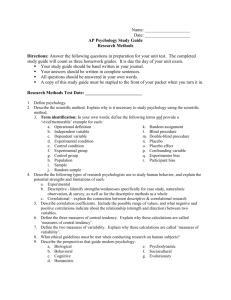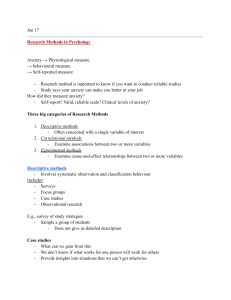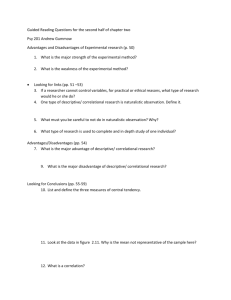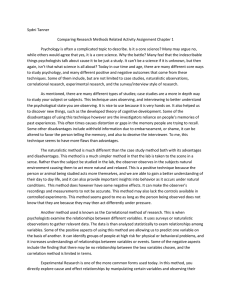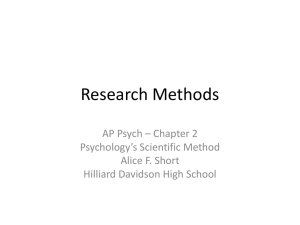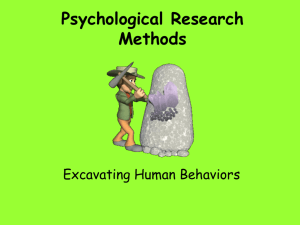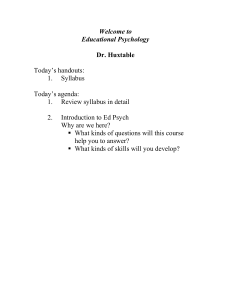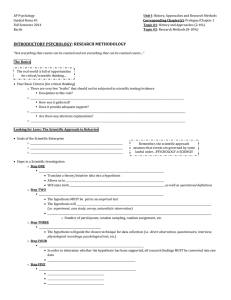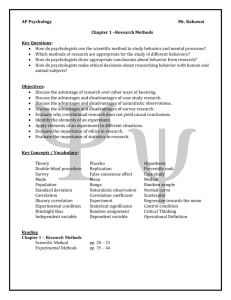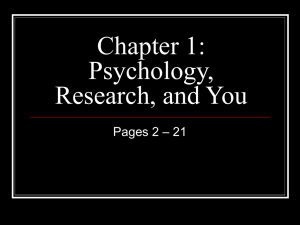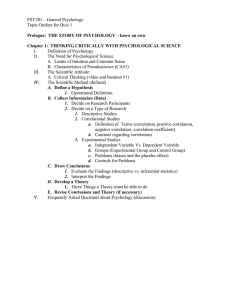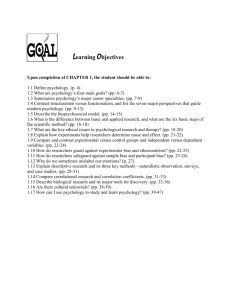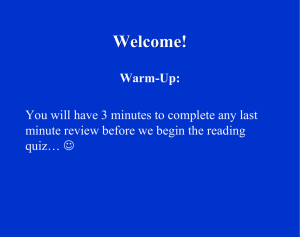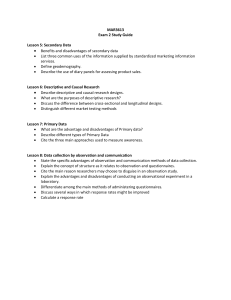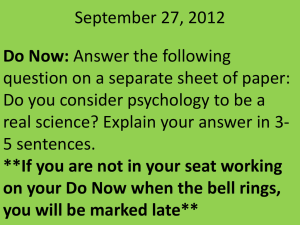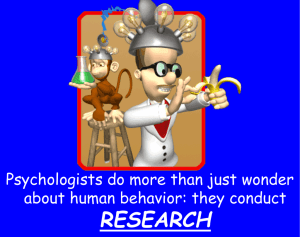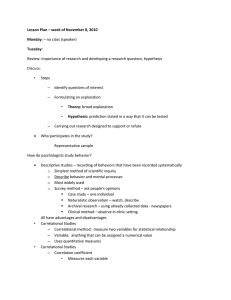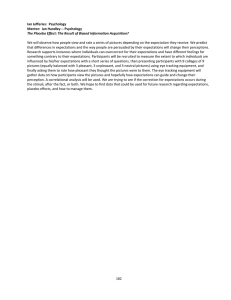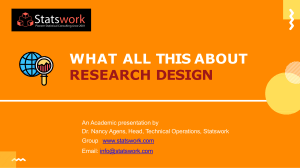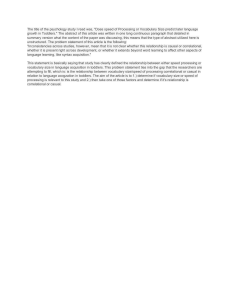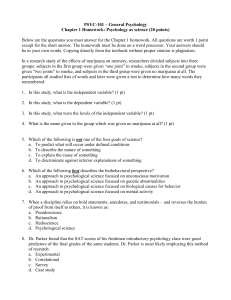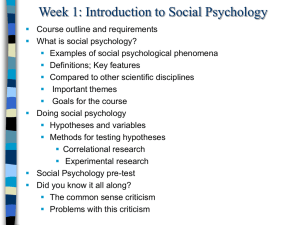Chapter One
advertisement
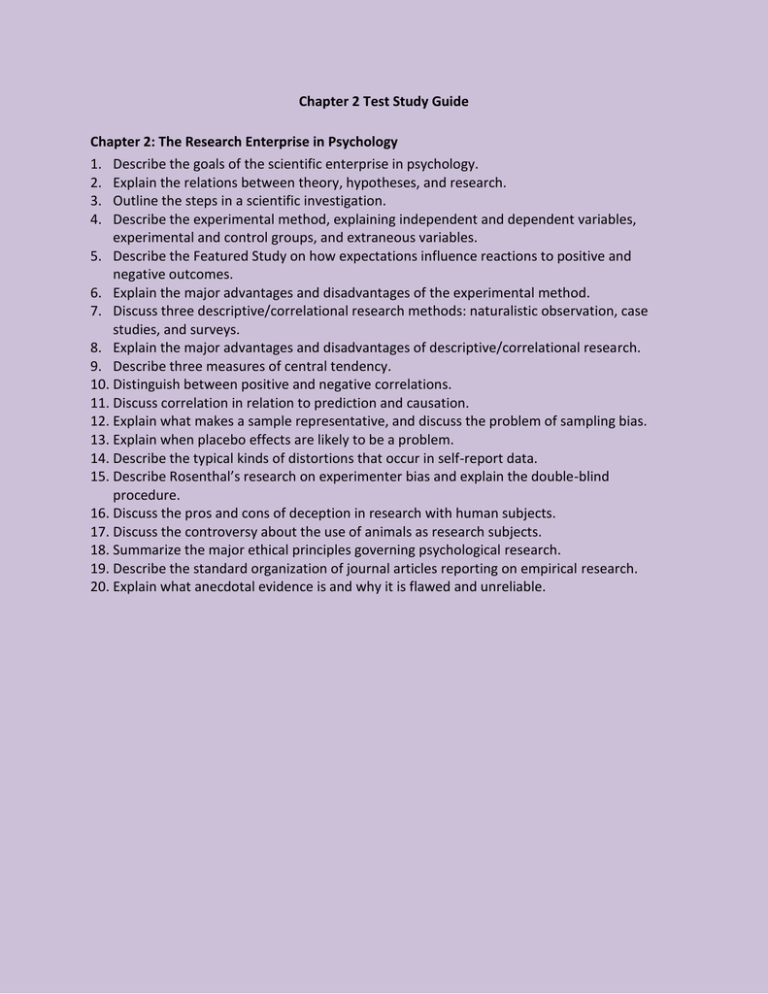
Chapter 2 Test Study Guide Chapter 2: The Research Enterprise in Psychology 1. Describe the goals of the scientific enterprise in psychology. 2. Explain the relations between theory, hypotheses, and research. 3. Outline the steps in a scientific investigation. 4. Describe the experimental method, explaining independent and dependent variables, experimental and control groups, and extraneous variables. 5. Describe the Featured Study on how expectations influence reactions to positive and negative outcomes. 6. Explain the major advantages and disadvantages of the experimental method. 7. Discuss three descriptive/correlational research methods: naturalistic observation, case studies, and surveys. 8. Explain the major advantages and disadvantages of descriptive/correlational research. 9. Describe three measures of central tendency. 10. Distinguish between positive and negative correlations. 11. Discuss correlation in relation to prediction and causation. 12. Explain what makes a sample representative, and discuss the problem of sampling bias. 13. Explain when placebo effects are likely to be a problem. 14. Describe the typical kinds of distortions that occur in self-report data. 15. Describe Rosenthal’s research on experimenter bias and explain the double-blind procedure. 16. Discuss the pros and cons of deception in research with human subjects. 17. Discuss the controversy about the use of animals as research subjects. 18. Summarize the major ethical principles governing psychological research. 19. Describe the standard organization of journal articles reporting on empirical research. 20. Explain what anecdotal evidence is and why it is flawed and unreliable.
